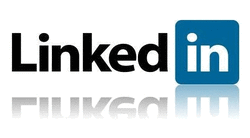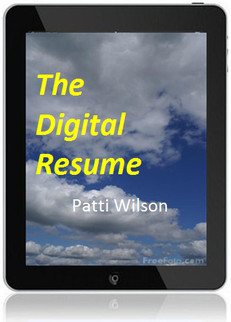 Last year, Linkedin opened up postings to the general membership. Prior to that time only Influencers (famous people, leaders in their field) designated by Linkedin were allowed to write those short, pithy articles that accumulated and archived on their profile pages. The rest of us had been relegated to ephemeral Linkedin Updates that disappeared into the news thread once posted. In July of 2014, the little pen icon appeared on the update box, and intrepid trail blazers began posting on their Linkedin Profiles. What is a post exactly? On Linkedin, a posting is short article, essay, or observation on a topic of your choice with an accompanying image. The posting image along with an attention-getting title are important because your posts will be displayed on your profile by image and title as well as sent to all your first degree connections. Further, if you have written an interesting post that attracts Linkedin’s attention, they may choose it for redistribution to millions of Pulse subscribers, the site’s in-house news magazine. What you have to say might just be the differentiator for success depending upon your career goals and employment circumstances. Aside from writing posts because they attract attention to your profile and raise your visibility on the site, there are three compelling career motivators to do it as well. 1. Thought Leadership Build and demonstrate your knowledge and expertise in your current business sector and professional field. Anything you do outside your company will reflect back positively inside your company. Writing on your observations, insights, and unique perspective improves your stature in your field. Your post’s topics can open doors to consulting opportunities, creates visibility for potential board positions, and generates invitations to speak at conferences. You can position yourself as the go-to expert for media interviews. This all becomes a virtuous circle that continues to build on your reputation within your field or business sector. 2. Career Transition Making a career transition to a new industry more often than not requires some background in the new sector. That experience is the unspoken key criteria in a recruiter’s search that could be the deal breaker when it comes down to the choice between you and another candidate for a position. Hands-on experience is not always easy to come by up front, but postings helps build the bridge to the new industry or sector. Write about where you want to be not where you are. Write about the companies that you have targeted for employment. Yes, it takes some research and digging, but then you will be better prepared for interviewing. You will have demonstrated your knowledge up front, and established your credibility in advance by easily accessible postings on your Linkedin profile. 3. Gaps in Experience Writing on topics that are gaps in your knowledge or experience can move you past objections for a promotion and enable a career move. Rejection for employment and promotion typically lies in a skills or experience gap that doesn’t enable a complete “fit”. The bigger the company the less likely they are to overlook that. For example, you may have a solid background in retail marketing for bricks and mortar entities but no experience in e-commerce. Or, you have been a CIO for a very traditional company who had no need to use big data, data analytics, and social media in their business. Whatever the gap, the missing hands-on experience can be supplemented by writing posts about various aspects of it. Rather than trying to sell your value proposition past that gap objection during an interview, write about it in advance to leverage your credibility. Since 2008, Linkedin has gained critical mass with now over 1/3 of a billion members. It is the 800 pound gorilla in the job search room. What it decides to do in terms of their profile presentation, content and style drives the modern-day professional’s career marketing and branding initiatives. This is not to be trifled with as hiring decisions are rarely made now without at least a glance or even longer review of your profile. Worrying about privacy and jeopardizing your current employment status should be a non-issue now. The loss of momentum in your personal marketing out- weights your employer’s critical judgement. Once you have a robust profile in place, as your career progresses it is easy to use it to enhance and facilitate your success.
0 Comments
 The take-away of the article when building your career or making a career move is to get a reputation and visibility ahead of curve. The easiest way to do that quickly by leveraging the expertise, fame and reputation of other professionals. It's simple really, set-up a blog and interview people working in your current field or new field. Pick the ones with the biggest networks. This creates overnight brand reputation for you as every one you interview will promote the interview blog posting to their network. If you are really ambitious, do a book. The article mentioned, " Remember, people judge how smart you are more on the basis of the questions you ask than on the answers you give". By asking very astute, thoughtful, and insightful questions,you look like an instant expert. Sure you are a thought leader in a month but continuing the interviewing as you expand your network is a long-term investment that maintains your brand in your field and keeps you on everybody's radar. ~~~~~~~~~~~~~~~~~~~~~~~~~~~~~~~~~~~~~~~~~~~~~~~~~~~~~~~~~~~ How to Become a Thought Leader in a Month or Less BY MICHAEL SCHEIN Thought leaders make more money, but getting there can be a real slog. Try this simple trick to become known as an expert in a fraction of the time. Here’s how the Oxford English Dictionary defines thought leader:“One whose views on a subject are taken to be authoritative and influential.” It’s no wonder so many business owners and executives invest millions of dollars trying to attain this status. Today, anyone can find countless alternatives to every product or service with a few mouse clicks. In this sort of environment, only those perceived as experts can truly thrive. Unfortunately, becoming a notable expert usually takes a long time, even in the digital age. Many people assume that if they throw up a blog and publish great content, members of their target market will find it. They won’t. There are literally millions of blogs and websites already in existence. The most successful thought leaders built their audiences by fostering relationships with other influencers they knew could effectively spread their message. Engaging in this kind of intense ongoing interaction can be grueling. Fortunately, there’s a way to shortcut the process. Target Your Own Circle FirstIf you’re a driven entrepreneur or executive, I’m willing to bet you have an extensive network of people with substantial knowledge and expertise. Like so much else in the business world, your personal network is the ideal place to begin when establishing yourself as a thought leader. Read full article here  This is probably the most useful networking tool Linkedin has launched since Groups. I always thought Answers, and Polls were for people who needed more to do, but Linkedin Alumni has some merit. I can look at my school and see where people work who graduated from there. The catch is I see 1st, 2nd, and 3rd degree connections but nobody out of my network. Given I have 7000+ linkedin connections the reach this tool has can be very helpful. However, those with less than 500 connections will find themselves at a disadvantage. That will be hard on new grads and current students. Time will tell to see who uses it. Start Mapping Your Career With LinkedIn Alumni Christina Allen, January 30, 2013 Whether you’re a current college student, a prospective student, or a recent graduate, you know that your educational choices – where you go to school and what you study – have a big impact on your future career. Gathered from the profiles of more than 200 million members, LinkedIn’s Alumni tool helps you explore alumni career paths from more than 22,000 colleges and universities worldwide – and build relationships that can help you along the way Check out www.linkedin.com/alumni. Explore your own school or any other (using the “change schools” button) to see where graduates live, the organizations they work for, andthe types of jobs they pursue. You can also change the dates to track careers of specific graduating classes. And we just added some new features: You can now explore alumni careers based on what they studied, their top skills, and how you are connected on LinkedIn. All the graphs are interactive, just click on the bars to drill down to the specific careers most interesting to you. Read more  These two news stories below from Inc. Magazine and the New York Times underscore the recurring economic themes that I have been blogging and writing about e.g. globalization and new technology. This is not a passing phenomena but rather a sea change in how, where, and what the next generation does with their careers. If they can't make it here then they will go elsewhere, anywhere, everywhere there is opportunity. This pattern will follow them as they mature in their careers. They will continue to follow opportunities across borders. And if the corporate entities are hiring fewer people and driving existing employees harder, then it is a good idea to take an entrepreneurial path and work hard for yourself. Not surprisingly, the two combine where entrepreneurship has a global reach and the upcoming generations under 50 are driving their own destinies worldwide. New Grads Seek Startup Opportunities reads the story from Inc Magazine: Several new programs are trying to expand entrepreneurship opportunities and training for recent college graduates. In a tight job market, recent college graduates are finding more opportunities to tap into their inner entrepreneur, according to USA Today. Even with corporations planning to hire 10% more college grads this year than last, a Pew Research Center report found that just over half of 18- to 24-year-olds had employment, the paper reports. That’s the lowest rate since 1948. As a result, more new grads are looking at business plan competitions and start-up initiatives. A nonprofit organization called Venture for America—modeled after the better-known Teach for America—recruited about 45 college graduates to work with small start-ups in lower-cost cities for two years, starting in June. The group’s big goal: to create 100,000 jobs by 2025. And then... Many US Immigrant Children Seek American Dream Abroad according to this NY Times article. The story goes on to say: In growing numbers, experts say, highly educated children of immigrants to the United States are uprooting themselves and moving to their ancestral countries. They are embracing homelands that their parents once spurned but that are now economic powers........Enterprising Americans have always sought opportunities abroad. But this new wave underscores the evolving nature of global migration, and the challenges to American economic supremacy and competitiveness. This is your new blog post. Click here and start typing, or drag in elements from the top bar.
 Companies may be hiring more now in some sectors as the economy continues to recover but they are still running lean. People inside of organizations, happy to be employed, are working hard...very hard indeed just to keep their situation. I delivered a webinar today to UCLA entitled Digital You. It was about using three key online tools that combined together would give any executive or professional an edge in the competition to be seen and heard. Someone reminded me that five years ago I was passionate about being on Linkedin.com and now I was telling people to move on to other sites and tools. They asked, "Why was that?" I explained using the analogy of the Red Queen in Through the Looking Glass telling Alice as they were running that in order to get anywhere they had to run twice as fast. Technology is like that. What's new today will be used by everybody in 4 years or less. Everybody (reaching for 200M) is on Linkedin.com now and that's a good thing for networking but not for personal branding. Linkedin is a template-based site as is VisualCV and they have you fill in their blanks. You end up looking just like everybody else. I described it as an online MBA resume book. Good people look at it but you can get lost in the shuffle. You are running, so to speak, to stay in the same place. Using new tools like personal profiles (flavors.me, about.me/pattiwilson ), personal presentations (sliderocket.com) and personal pages using website builders gets you moving twice as fast as others vying with you for visibility, eye-balls, and market share online. I personally use Weebly but there are others that are great too ( here is Wikipedia's list of top website builders). Is this more work? Sure. Do you want your career to continue until you retire? Then run twice as fast to get somewhere and keep doing it. The good of all this is that once it is in place the only maintenance you do is blogging or updating when you change positions, write articles, are interviewed by Wall Street Journal or other notable events worth capturing ongoing. There is a downside. One person asked at the end if this required that you have a very clear, defined, well-positioned brand, value proposition and career target. Yes, it does and that's is the most difficult part actually. Once you have clearly defined yourself the content, images, and look all falls into place. My mentor, Richard Bolles author of What Color is Your Parachute said, in describing this process, "this is the hard part. This is where you have to think, people"... and run faster.  Despite four years since the global crash and 9+ since Linkedin was born, many executives and professionals haven't grasped the full impact of a reset economy and the Internet on a job hunt. Here are some the most common ill conceived notions that I hear: 1. Being on Linkedin will bring job opportunities to you. There is a common belief that if you build your profile, then the recruiters will flock to you. Well, most likely, your Linkedin profile will give you a boost on Google ranking in a name search. Solution: The big value of Linkedin is the access you get to networking in 50 groups and 50 subgroups. Rather than waiting to be found, build your Linkedin connections into thousands for ongoing leverage. 2. I customize my resume for every position and opening. Good luck with this one because they will all have to synch your one Linkedin profile. For that matter, all your profiles on Viadeo, Xing, Linkedin, Orkut, etc should all deliver the same message about you. Solution: Focus your search target on one or two overlapping business domains. Gear all your branding and positioning of yourself around those sectors. 3. The search firms don't get back to me or they have nothing for me. Search firms more than ever are working to find the perfect fit for their client companies. Given that their business is down by more than half since the crash, the demand of top talent continues to exceed supply. Unless you exactly fit their requirements, you will find no opportunities forthcoming from them. Solution: Using search consultants and headhunters as a source of information about market trends and companies hiring would provide more fruitful results. 4. My continued outreach to my network is wearing out my welcome with them. Don't use up your direct network by continuous asking for introductions to job openings. When those turn up empty, or as dead ends... and they mostly do... then your network is exhausted. Solution: Double or triple your network by using your existing connections for introductions into their network. This grows a relevant source of contacts in your field without much effort. 5. My employer will suspect that I am looking if I am highly visible on the Internet. I am still surprised by how much that concerns people when millions are on social networks now. Just do an advanced people search on Linkedin by your company and competitors. You will find more than you expect. Solution: Get on the Internet with gusto because you only have to do it once. Put up profiles. Build a website and blog. Become visibly well branded and be done with it. Once you are on it, that becomes old news. 6. Since I am not willing to relocate, I am looking only at local employers. The market place for talent is now global and your competition can come from anywhere thanks in part to the Internet and to the willingness of professionals outside the USA to seek opportunities anywhere. Solution: Search globally and work locally. You cannot determine who or where your next employer will be. You can negotiate the details like location when they make an offer. 7. I don't need to be visible online as my job is secure and I am happy in my current situation. Nowadays all marketing is online. Look at every Superbowl ad for its references to product websites. Professional advancement, and career promotion are done equally outside your organization as within. Solution: The professional status you build for yourself outside your company reflects positively on you and your organization. Making a name for yourself is most easily done online.
 _Being unemployed at the C-level can be the kiss of death. Of course, I have been accused of exaggeration and hyperbole, but not in this case nor by executives in that situation. They tend to confirm that finding a new similar position can be seemingly an insurmountable challenge. I am not referring to the nose-bleed section of CEOs that collect a king's ransom in severance after they are let go such as the CEO's of HP, Burger King and New Yorks Bank Mellon. They can afford to retire or buy their own company. The early (50 something or younger) CEO or c-level executive is usually not in that position. The serial CEO, CIO, CMO needs the next opportunity as much as wants it. How do you continue to look viable after losing a C-level job and better position yourself for a new opportunity? It depends on your net worth and network. Some of the ideas suggested here require significant capital while others rely on a substantial Outlook database of connections. Your age and geographic location can be a determining factor as well. Obviously the ideal scenario is a job lost due to an M&A or buyout with no negativity that trails after you. The biggest pitfall with that scenario is that it happens often in a sector where acquisitions are driven by industry commoditization. Thus, executive career options are limited going forward as the positions are correspondingly eliminated as well. And you can't count exclusively on executive search firms despite prior placements through them. Many executives report that search consultants unfortunately cannot consider them or do so as a last resort because typically their clients are expecting that the position be filled by a candidate who ideally matches all requirements, including current employment. However, if you still want skin in the game and crave the next challenge of running an organization, then here are potential strategies to pro-actively, and as triage, mitigate the damage of a lost C-level position to your career. Be on Boards You can't do this soon enough in your career. Start early and at lower levels to work your way up while you pick up valuable networking contacts along the way. Don't wait to be CEO to entertain the idea of a board-level appointment. Many start-ups, and small companies seek out top executives across multiple business sectors to fill their board positions. Typically, these are paid in stock vs stipend or salary. Board positions are worthy to assume a greater role at the top of your CV to fill in for a current lack of employment. The network derived from it will help open doors for your next opportunity as a board member or executive. Found Your Own Company or be a Serial CEO Serial CEOs actually are plentiful in the world today. The magic ingredients to making that happen are an outstanding network of colleagues who help to open doors. There must be available doors to open which requires a growing not contracting sector. Lacking that, the ability to expand beyond your original sector and move into adjacent industries is crucial. A key to staying relevant, current and therefore, employable is your willingness to expand beyond a sector comfort zone to take on challenges in affinity and tangential sectors. The other piece is the ability to build a case and sell yourself into that sector when you don't have the luxury to buy your way in. Try Politics Running for office or actively working to elect a successful candidate can provide new career stability. You may luck out get elected and be on a secure career track for at least the duration of the elected term. At the minimum, the visibility and connections you will have gained from the effort may enable a government appointment at the state or federal level to head up a commission, committee, or even be a diplomatic envoy. Once any kind of government experience is secured by appointment or election, leveraging that back to the business world is an easy step. Think Al Gore. Start an NGO During the dot.com crash, a top executive founded a weekly lunch group for fellow unemployed executives to keep him company. Attendance grew with a corresponding website, e-groups, corporate sponsorship and incorporation. He is now the salaried executive director of this well-established NGO. Of course it is not the money he had before but it fits his situation in life now. Another colleague readily tells the story of how she founded a women's professional association during the downturn that gave her a great network, and helped keep her niche search firm going. Become a Philanthropist If you leave with a small golden nest egg, then setting up a little foundation as a replica to the Bill and Melinda Gates Foundation would be in order. Beginning with your own money can be a small capitalization when you reach out to the likes of a Warren Buffet-types to support the endeavor. This would not only do good in the world but provide job security indefinitely for you as the head of the foundation. Be an Author You don't actually have to write the book as ghost writers have a purpose in life. But, authoring a topic that both is timely, attention-getting, and paves the way for a new opportunity is a good way to spend time during a search. Book tours have an amazing effect on leveraging your network, creating visibility and building credibility. You become an instant thought leader and can at least raise substantial consulting and presentation fees. There is no easy panacea to unemployment at the C-level. The search for a new opportunity is long, very long, with available openings less abundant, and the competition fierce. It demands of you the openness and flexibility to try new strategies and tactics, and the willingness to sometimes put aside your ego to think beyond titles. Most of all it requires taking stock of your dreams, goals and track record to envision a new future. If you are ready and willing to make a serious career move and not look back to the C-suite, then some of these ideas will suit you well. |
Categories
All
Archives
May 2019
Licensed by CC-by-SA
|
